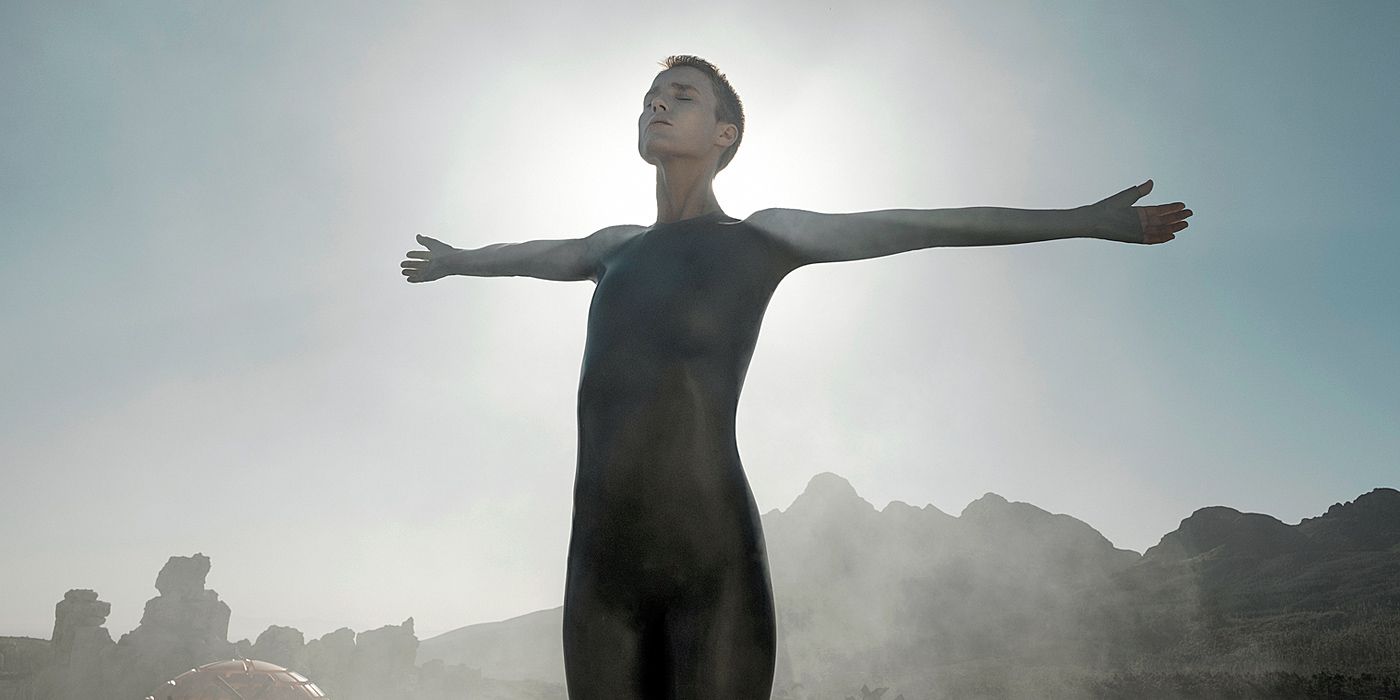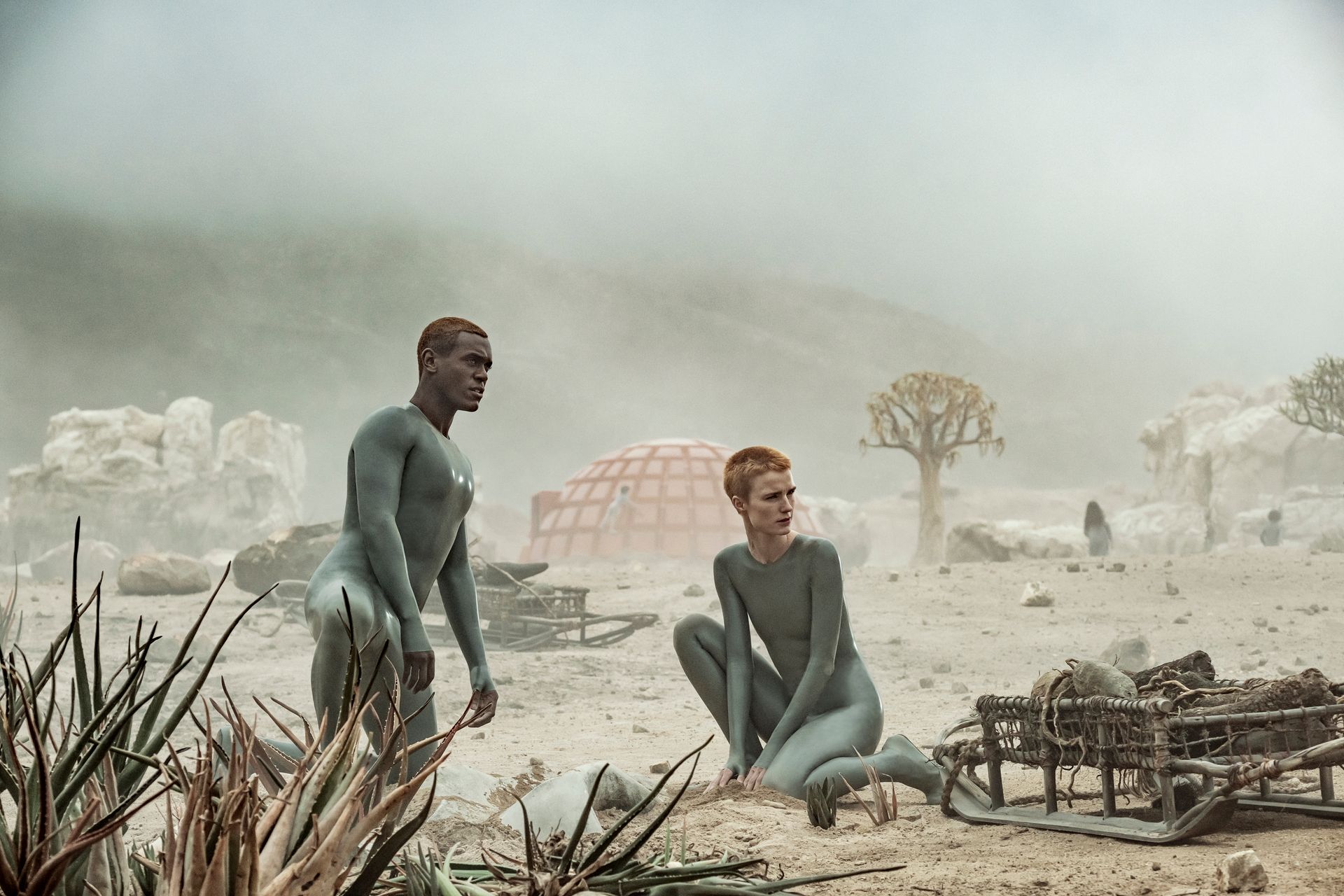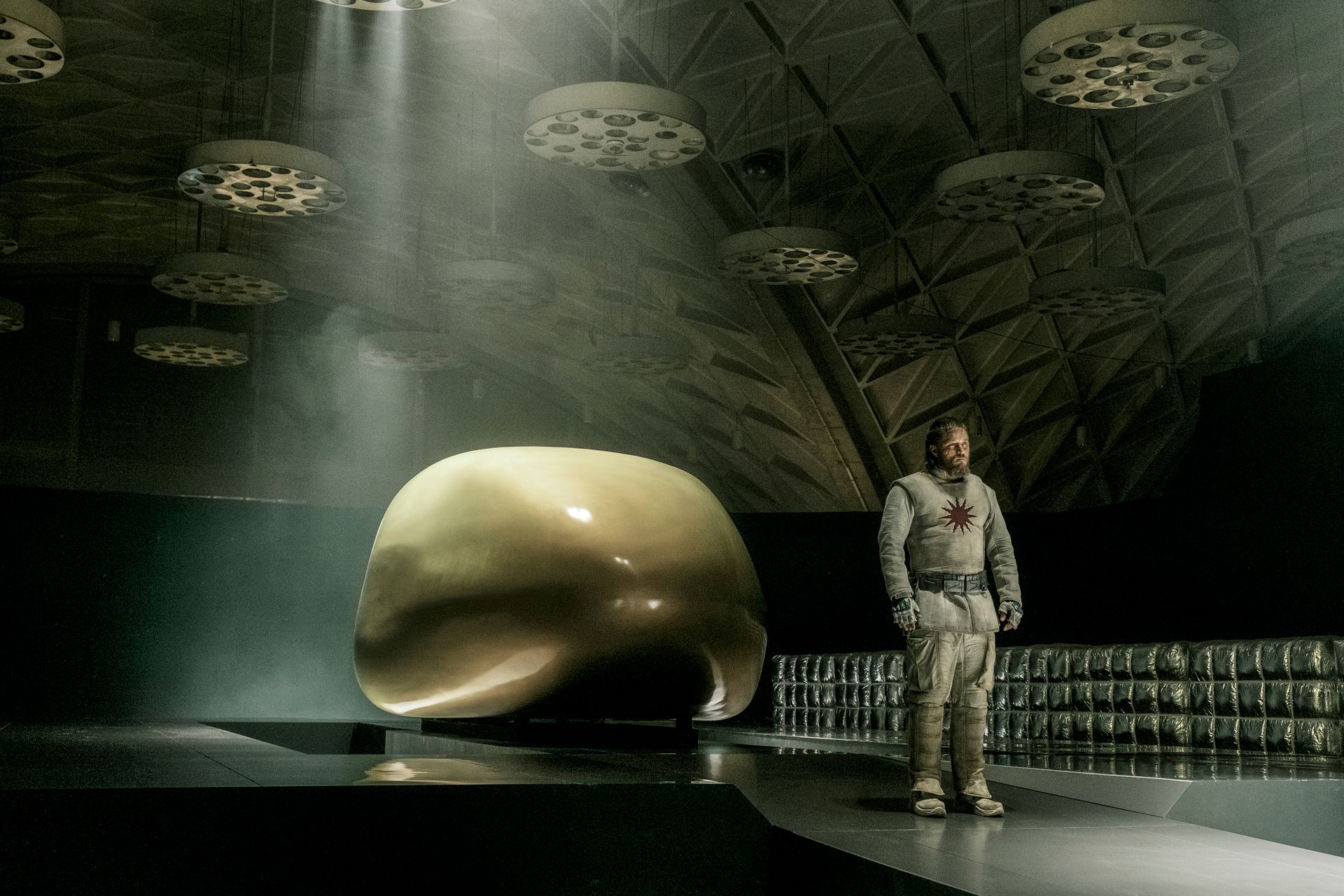So much happens in the first episode of the HBO Max sci-fi series Raised by Wolves that it’s difficult to imagine where the story will go next. That makes for an exciting viewing experience, but it also means the pacing in the 10-episode first season (or at least in its first half) is a little lopsided, opening with a rush of momentous developments before slowing down and looking backward. With director Ridley Scott on board for the first two episodes, in his first work for American television, Raised by Wolves could have been an intense, stylish feature film. As a series, it’s a bit more uneven, but creator Aaron Guzikowski still presents plenty of intriguing ideas.
Scott may have been drawn to the series by the central characters, androids known as Mother (Amanda Collin) and Father (Abubakar Salim), who bear more than a passing resemblance to the androids in Scott’s Alien films. In particular, the androgynous, commanding Mother could be a cousin to Michael Fassbender’s David from Prometheus and Alien: Covenant; Collin’s masterful performance is every bit as chilling as Fassbender’s. The androids here even bleed milky white blood and have innards that resemble wet noodles, clear callbacks to Scott’s iconic work.
Mother and Father aren’t facing off against deadly aliens, however (at least not at first). Instead, they’re tasked with restarting humanity on the distant planet Kepler 22b, after Earth is ravaged by the usual apocalyptic culprits (climate change, war). As the first episode begins, Mother and Father arrive on Kepler with six human embryos that Mother then brings to term, and they attempt to raise the children as humanity’s new hope. They explain that the final war on Earth took place between atheists and a religious group known as the Mithraic, and the atheists sent the androids to Kepler to establish a new society based in atheism.
But the Mithraic aren’t far behind, at least in space-travel terms. Their ship, which they of course refer to as the Ark, travels slower, because it’s filled with humans in cryogenic stasis, who can’t withstand the same speeds as androids. Thus, Mother and Father have 12 years to raise their children before the Mithraic arrive. But life on Kepler is bleak, and over the course of the first episode, nearly all of the initial six children succumb to disease or accidents, leaving only the initially scrawny Campion (Winta McGrath), named after the man who programmed Mother and Father.
That’s when the Mithraic arrive, with the determined military officer Marcus (Vikings’ Travis Fimmel) leading the way, and that’s when the true extent of Mother’s abilities are revealed. She’s actually a war machine known as a Necromancer, and her turn to ultra-violence in defense of what she believes (or is programmed to believe) is terrifying. There’s clearly something not quite right about Mother from the beginning, and Collin expertly handles her abrupt shifts from nurturing to homicidal, making those contradictory aspects into essential character traits. She can turn a simple telling of the story of the three little pigs into a creepy, ominous threat. Collin is so mesmerizing as Mother that she often overshadows the rest of the cast, whose characters are generally less complex.
Later episodes reveal a more complicated backstory for Marcus and his wife Sue (Niamh Algar), but the Mithraic are never as interesting to watch as the androids are, and the flashbacks to the war on Earth feature mostly standard post-apocalyptic action. In his opening two episodes, Scott establishes Kepler as an eerie, desolate place with secrets of its own, including strange creatures that slowly emerge, and a possible supernatural presence. The unsettling mysteries of the planet are far more intriguing than the basic battlefield clashes, and the show is most effective when it focuses on the characters’ struggles in this hostile environment rather than looking back to how and why they arrived there.
The conflict between rationality and religion is sometimes presented in overly simplistic terms, and Guzikowski hedges his bets by using the fictional Mithraic religion (named for a Roman mystery religion) rather than an existing faith tradition, which makes the show’s philosophical debates a bit toothless. The androids who discover human emotions are a sci-fi cliché, but the development of Mother and Father is unpredictable enough to find new ways to approach that idea. They both start to catch feelings, but in very different ways, which often places them in opposition to each other.
As the potential savior of humanity who becomes a valuable asset to both sides, Campion is sometimes more of a symbol than a character, and the other children in the care of Mother and Father are still underdeveloped as the season reaches its halfway point. But Marcus and Sue operate in an interesting moral gray area, and there’s potential both in their clash with Mother and Father and in a theoretical team-up. Raised by Wolves is sometimes overly ambitious, but Scott’s direction establishes an immersive world, and the creators have plenty of corners of it left to explore.
Starring Amanda Collin, Abubakar Salim, Winta McGrath, Niamh Algar, Jordan Loughran, Matias Varela, Felix Jamieson, Ethan Hazzard, Aasiya Shah, Ivy Wong and Travis Fimmel, the first three episodes of Raised by Wolves premiere Sept. 3 on HBO Max, with subsequent episodes debuting each Thursday.



